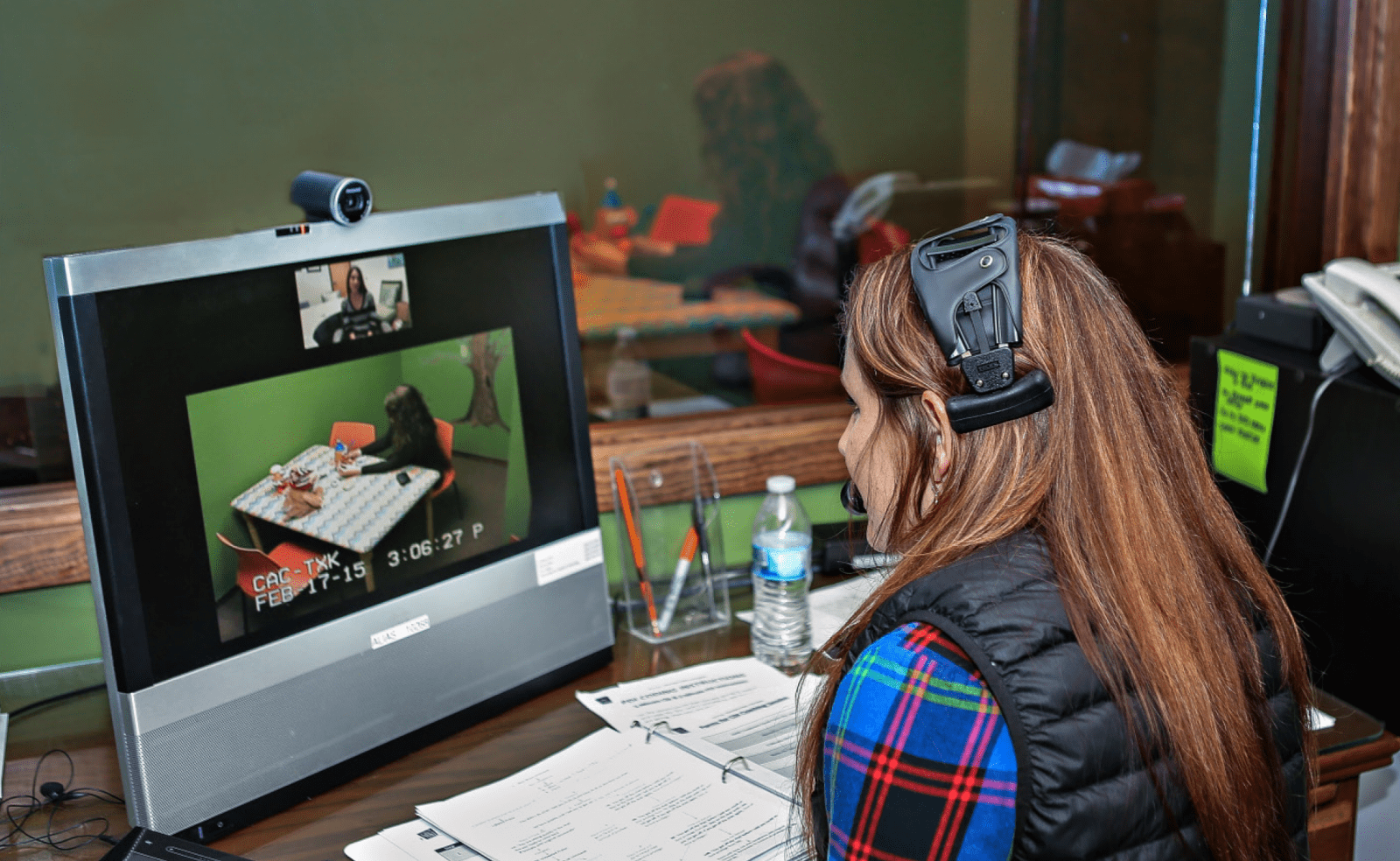Local Children’s Advocacy Center Provides Parent-Child Interaction Therapy

by Dani Hamblett
Chances are that if you started asking around, you would know someone who knows someone who has had some kind of experience with CASA here in Texarkana, whether as a volunteer, supporter, or even an employee.
If you aren’t familiar with CASA, here is the short version: volunteers work with children who have been removed from their homes due to abuse or neglect, and after becoming familiar with the child, the case, etc., these volunteers are invited into the courtroom to help make recommendations for the child’s best interests. According to the CASA website (http://www.casatexarkana.org), children who have the assistance of a CASA volunteer are more likely to maintain stable placements in foster care and avoid the court system once their case is dismissed. This is a huge first step toward these children going on to live healthy and productive lives.
In 1996, the local CASA for Children added the Texarkana Children’s Advocacy Center (TCAC) program to its array of services offered to abused children. CASA was recently chosen as one of five advocacies in Texas to participate in a Parent-Child Interaction Pilot Therapy training program that will be provided through the TCAC. This honor was awarded through the Children’s Advocacy Centers of Texas and made possible by a grant from the Meadows Foundation and the Wadley Foundation.
Children who are victims of or witnesses to violence or abuse often display behavior problems as a result of the trauma. These kids end up in therapy aimed at correcting and eliminating the problems, and this is where TCAC comes in. Traditional therapy involves practitioners working one-on-one with children or parents/caretakers. In contrast, Parent-Child Interaction Therapy is exactly what it sounds like. Instead of children and adults working separately with a therapist, this treatment guides the parent through interactions with the child to help them with tools to reduce negative behaviors. “Basically it’s a ‘hands-on’ therapy where the parent and child get to interact while the therapist watches via a two-way mirror and coaches the parent on what to do,” says Missy Davison, Program Director at TCAC.
Davison and her colleague, Clinical Director Karrah Dickeson, are the two local counselors currently participating in weekly training and supervision with University of California-Davis professionals via Tele-Medicine, a medical teleconferencing system. Each therapist will receive a total of 245 hours of training and is expected to complete training as PCIT practitioners within 12 months. Davison and Dickeson are currently practicing the therapy, under the guidance of their trainer, as part of the learning process. Parents wear an ear bud that allows the therapist to tell them exactly what to do to keep the interaction in a positive place, or how to constructively correct behaviors that need it.
Helping these kids is the most rewarding and meaningful job I could ever do.
“This is totally different from most therapies that focus on either just the child or the adult/parent, not incorporating both child and parent, which is key to truly helping the child’s behaviors,” said Davison. She also went on to describe another benefit oft his therapy, which is that it can be conducted on children as young as 2 years old, where previous therapies have had a minimum age requirement of 4 years. Often children learn how to react by watching their parents or caretakers and how they handle issues; by guiding the parents through a healthy interaction, they are given the tools they need to help the child, not just in therapy sessions, but at home, school or any other place the child needs support. Families participate in 14-20 sessions, with clear goals outlined along the way, until the parent/caregiver masters the skills they have been taught and the child’s behavior improves. Having goals laid out encourages families to remain in treatment until its completion.
According to the website PCIT.org, parents who have completed PCIT show increases in reflective listening and pro-social verbalization, and decreases in sarcasm and criticism of the child. Parents have also reported less distress and a greater sense of control after completing therapy, all of which can lead to a healthier dynamic in the home, which is the ultimate goal of therapy.
When asked what it means to her, Davison, who celebrates her 10-year anniversary with TCAC on March 1, summed up the benefit of these programs to our community: “Helping these kids is the most rewarding and meaningful job I could ever do. We help them heal and play a role in changing their lives and showing them that they can have a beautiful future. Our work environment is supportive and it truly feels like family. I love my job.”









